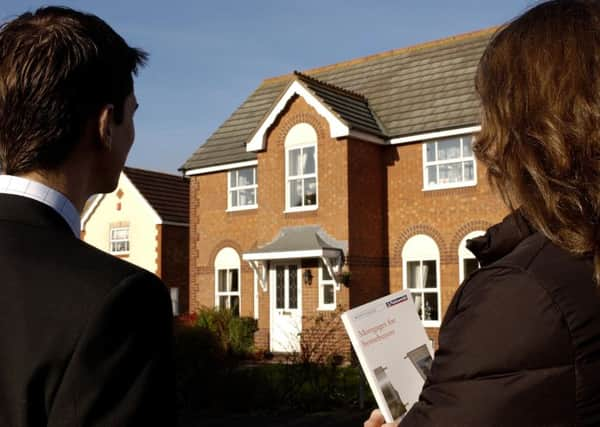Pros and cons of buying a newly-built property


Fuel bills are rising and we are increasingly time poor, which means that the lure of a low maintenance, energy-efficient newly-built home has never been greater.
Even those who swore they could never live in anything that wasn’t at least a 100- years-old are moving from period properties to new ones thanks to the advantages they offer.
Advertisement
Hide AdAdvertisement
Hide AdHeating bills in a new-build are usually about half those in a Victorian property of the same size, thanks to building regulation requirements for insulation and air-tightness.
Then there are the mod cons and the en-suites – even the smallest new homes have two bathrooms these days. Add to that the weekends free from DIY and decorating, at least for a few years, and you can see why newly-constructed homes are so popular.
The Home Builders Federation calculate that it could cost as much as £40-£45,000 to bring an older property up to the same standard if you factor in a new roof, boiler and upgrading the kitchen and bathrooms. However, while the positives are plentiful, there are still some pitfalls. Here are some of issues you must consider when buying new.
*Leasehold. We are used to flats being sold on a leasehold basis but the number of leasehold houses has burgeoned since developers realised there was an opportunity to make more money. Classing a house as leasehold gives homebuilders a chance to charge buyers an extra £2,000 to £3,000 for the freehold. Those who decide not to pay the extra and opt for a long lease, usually 999 years, may later find that the developer has sold the freehold to a third party.
Advertisement
Hide AdAdvertisement
Hide AdHomeowners are then at the mercy of companies who want to maximise income by increasing ground rents, which are an average of £200 a year and can rise annually by the rate of inflation. Owners have a legal right to buy out their freehold but often find that the original price quoted by the developer rockets once it is in the hands of an investor. One buyer was quoted £2,000 for the freehold by the developer only to find this had risen to £38,000 after being sold on to a third party. The freeholder can also charge large sums of money if you want to add an extension.
The government is considering a clampdown but until they do it is vital that you check the small print. Some developers do not mention that the property is leasehold until late in the buying process and they certainly don’t highlight the possible issues. It makes sense to pay an extra £2,000 to £3,000 to buy the freehold or you may want to walk away and purchase from a developer who doesn’t sell their properties on a leasehold basis.
*Space and storage. Show homes are made to look amazing but they don’t reflect real life and all the “stuff” that comes with it. Storage is sometimes lacking in new homes so assess every room and ask yourself where you will put your furniture, especially your wardrobes and chests of drawers. Is there a space for suitcases, sports equipment and the vacuum cleaner? The best developers design storage into their schemes.
*Checks. Horror stories are few and far between but it pays to be careful. Do due diligence on the developer before you agree to buy. It’s easy thanks to the internet. There will always be the odd grumble but if there are lots and the complaints are serious then alarm bells should ring. The Home Builders Federation carries out an annual customer satisfaction survey that gives developers a star rating, which will also tell you a lot and bring some comfort. Most firms score four and five stars. www.hbf.co.uk
Advertisement
Hide AdAdvertisement
Hide Ad*Quality. Just because it’s new does not mean it is perfect, though it’s hard to tell when the property is plastered out and painted. Windows that aren’t square and floors that are not straight can be clues. If you are suspicious or want to be extra careful then you can hire a snagging inspector, aka a surveyor, to check the property out before you move in. Snagging surveys usually cost from £300 to £600 but it can be money well spent. A professional may well spot problems that might otherwise go unnoticed until the property is out of its warranty period. You can find checklists online if you want to DIY.